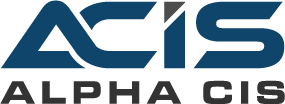Understanding the FTC Safeguards Rule and Its Impact on Accounting Firms in Metro Atlanta
In the bustling business environment of Metro Atlanta, accounting firms face unique challenges in protecting customer data. To help address these challenges, the Federal Trade Commission (FTC) introduced the Safeguards Rule in 2003. This rule provides a robust framework for financial institutions, including accounting firms, to secure customer information. Here’s what accounting firms in Metro Atlanta need to know about the FTC Safeguards Rule and its implications.
What is the FTC Safeguards Rule?
The Safeguards Rule requires financial institutions to implement administrative, technical, and physical measures to protect customer data. “Customer information” includes any record containing nonpublic personal information about a customer, whether it’s in paper, electronic, or other forms. This requirement extends to data maintained by the institution or on behalf of its affiliates, as well as data related to customers of other financial institutions if shared.
Key features of an effective information security program under the Safeguards Rule include:
- Written Documentation: The security program must be documented in writing to ensure accountability and clarity.
- Customization: The complexity of the program should align with the size and nature of the business, its activities, and the sensitivity of the information.
- Reliability: The program must focus on securing customer data and protecting against foreseeable threats to its security and integrity.
Who Does the Safeguards Rule Apply To?
The term “financial institution” under the Safeguards Rule encompasses more than just banks and credit unions. It includes entities engaged in “financial in nature” activities such as mortgage brokers, tax preparation firms, payday lenders, and, following a 2021 amendment, “finders” who connect buyers and sellers. The Rule’s applicability depends on the nature of the business activities, not the company’s label, so businesses should regularly review the Rule, especially if their operations change.
Building an Effective Information Security Program for Metro Atlanta Accounting Firms
To comply with the Safeguards Rule, accounting firms in Metro Atlanta should focus on the following goals:
- Qualified Individual Appointment: Designate a knowledgeable person to oversee the security program, prioritizing expertise over formal qualifications.
- Risk Assessment: Conduct regular assessments to understand the data you hold and its storage locations. Update this assessment periodically to identify potential risks.
- Implementing Safeguards: Key safeguards include:
- Regularly reviewing access controls.
- Maintaining an updated data inventory.
- Encrypting data, especially during transit.
- Regularly assessing application security.
- Using multi-factor authentication.
- Ensuring secure data disposal.
- Keeping up with changes in your information system.
- Monitoring authorized user activities.
- Continuous Monitoring and Testing: Regularly test for vulnerabilities, especially after significant changes to your operations.
- Employee Training: Conduct regular training sessions to keep your team informed about the latest risks and security measures.
- Service Provider Oversight: Work with experienced service providers and include clear security expectations in contracts, with provisions for periodic assessments.
- Incident Response Plan: Develop a well-documented plan to address security breaches promptly and effectively.
- Reporting: Ensure that the Qualified Individual reports to top management or the Board of Directors on the program’s effectiveness and compliance.
Why the Safeguards Rule Matters for Accounting Firms in Metro Atlanta
For accounting firms in Metro Atlanta, protecting sensitive customer data is crucial. The FTC’s Safeguards Rule provides clear guidelines to help businesses safeguard their data and maintain customer trust in an increasingly digital world. By adhering to these guidelines, Atlanta-based accounting firms can better protect themselves and their clients from data breaches and cyber threats.
For the most up-to-date information and additional resources, visit the FTC’s official website: FTC Safeguards Rule: What Your Business Needs to Know.
If your accounting firm needs help making sure you comply with these FTC regulations, please reach out to us by phone (678) 619-1218 or book a discovery call here

Dmitriy Teplinskiy
I have worked in the IT industry for 15+ years. During this time I have consulted clients in accounting and finance, manufacturing, automotive and boating, retail and everything in between. My background is in Networking and Cybersecurity



